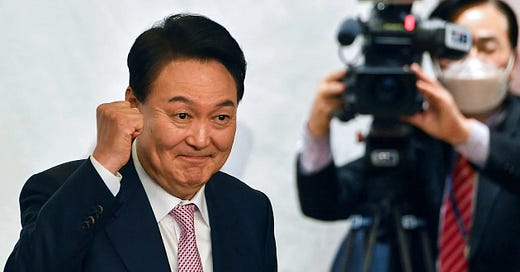South Korea Returns to Historic Trajectory
New government pursues traditional political and business paradigms
By: Shim Jae Hoon
Stiffening military preparedness against North Korea’s missile threats, and bringing more market deregulation to play in economic management – these are two principal orientations of the new government under president-elect Yoon Suk-yeol, who takes office on May 10.
That means South Korea, Asia’s fourth largest economy behind China, Japa…
Keep reading with a 7-day free trial
Subscribe to Asia Sentinel to keep reading this post and get 7 days of free access to the full post archives.



